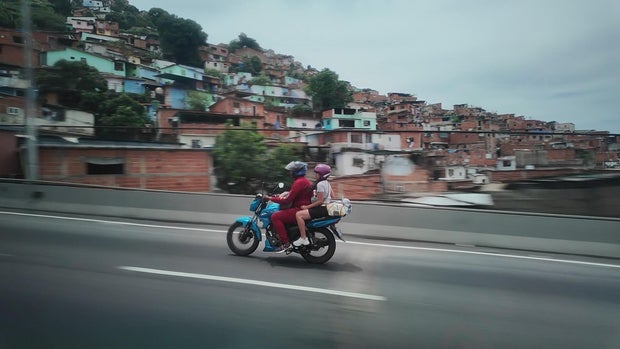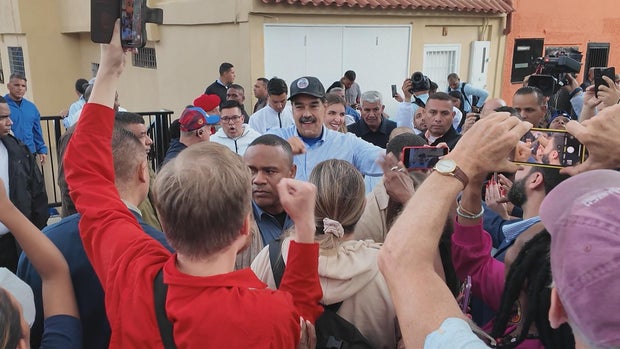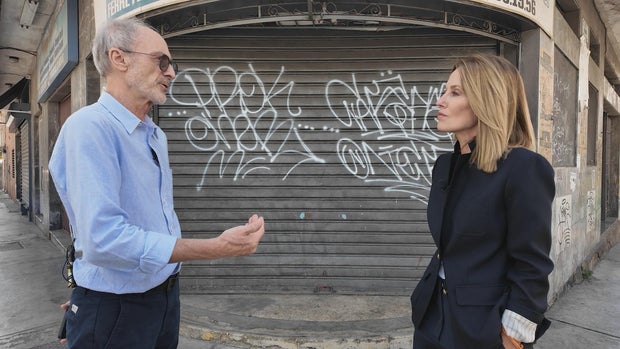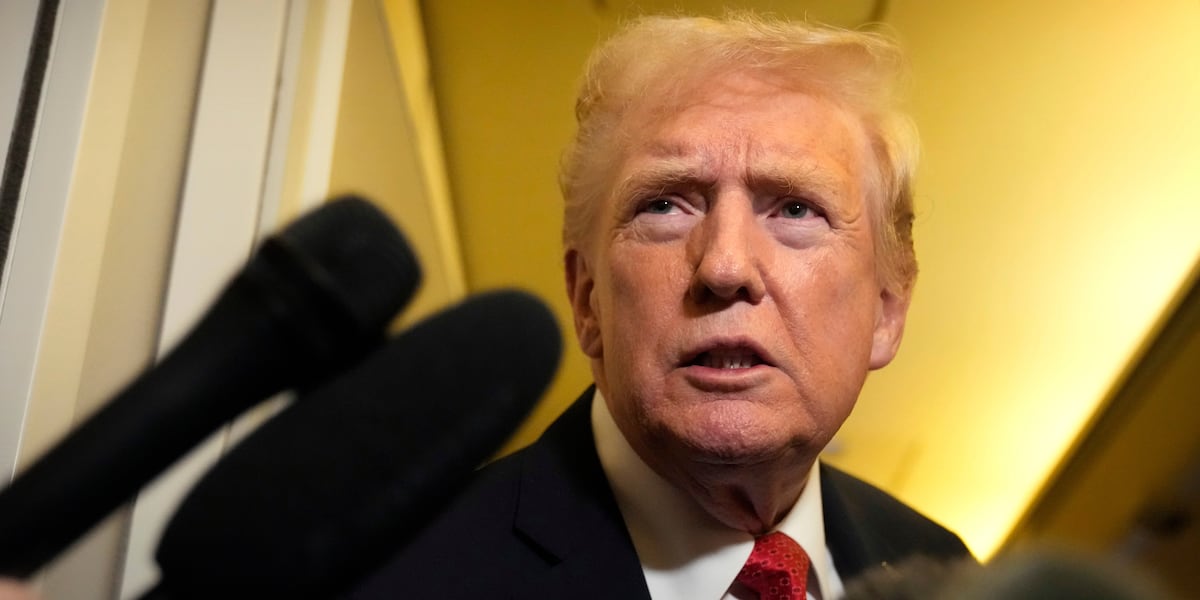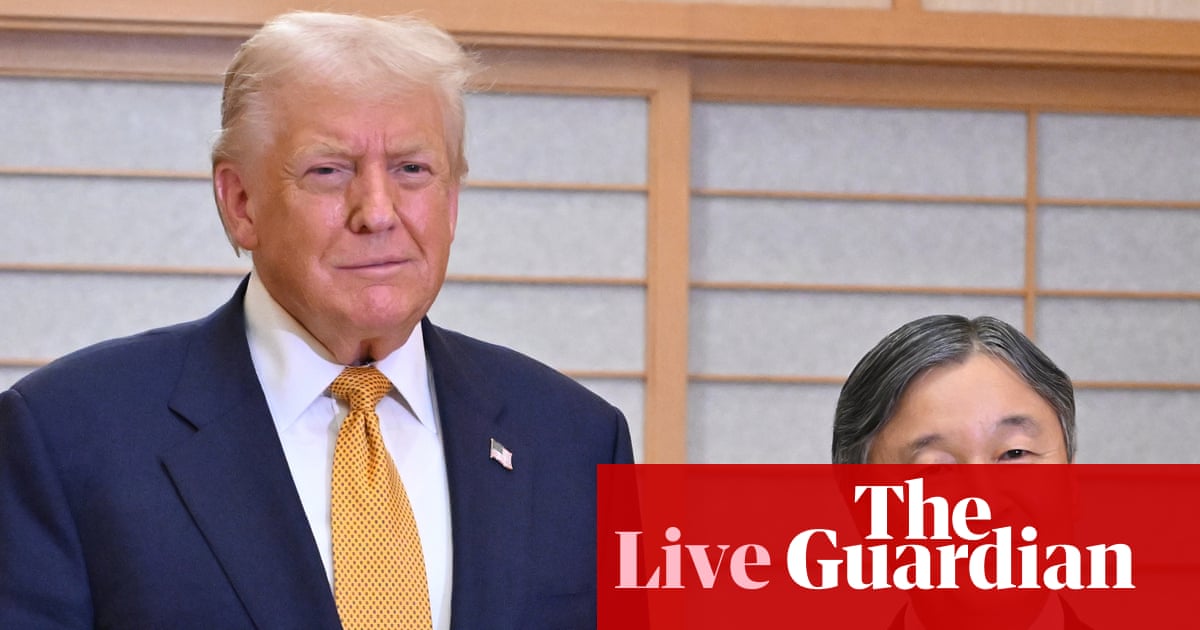The U.S. bombing of alleged drug trafficking boats in the Caribbean off the coast of Venezuela and the buildup of military assets in the region have raised broader questions about possible plans to oust President Nicolás Maduro.
The Venezuelan leader, first elected in 2013, has been in the United States’ crosshairs for years. Ambassador James Story, who was the last American diplomat at the now-closed U.S. embassy in Venezuela, said the show of U.S. force in the region is likely intended to oust Maduro.
“This is a very bad actor sitting on top of the world’s largest known reserves of oil, plus the critical minerals that will fuel the 21st-century economy, and he’s in bed with our strategic competitors,” Story said.
“Let’s be very clear,” Story added. “This is a criminal organization masquerading as a government. This is an individual who is under indictment for narcotics trafficking– commits human rights violations. Someone who has used the apparatus of the state to throw people in jail, to torture them, to kill them.”
What life is like in Venezuela under dictator Nicolás Maduro
Earlier this month, 60 Minutes traveled to the South American nation for a rare look at what life is like under its embattled dictator. Correspondent Sharyn Alfonsi found that instability isn’t just an architectural feature in Venezuela, it’s a way of life.
Hunger, chronic blackouts and scarcity of essential medicines plague the country of more than 28 million people. Today, more than 70% of the residents live in poverty. It’s a stunning reversal of fortune for a nation that was once one of the wealthiest countries in the world.
Socialist policies and mismanagement have crippled Venezuela’s economy.
60 Minutes
The crisis has been exacerbated by U.S. sanctions imposed in direct response to the regime’s anti-democratic actions, human rights violations and corruption.
Shoppers at a busy market in Caracas, Venezuela’s capital, heatedly haggled over prices. The country is facing a triple-digit inflation rate.
One woman at the market said the $50 a week she earns is insufficient to feed her family. She said she plans to move to Spain in a few months.
Nearly 8 million Venezuelans — roughly 20% of the population — have fled the country in the last decade. Most of those who remained hoped last year’s presidential elections would be a turning point. But even after tallies showed the opposition won nearly 70% of the vote, Maduro refused to leave, stealing the presidency. Protests were met with brutal crackdowns, which the United Nations says included jailing, torture and even killing opposition.
U.S.-Venezuela tensions rise, reach a boiling point
In January, the Trump administration briefly engaged with Maduro’s government. The U.S. negotiated a deal for the release of six U.S. prisoners who were arrested while visiting the country. The U.S. also negotiated for the resumption of flights carrying Venezuelans deported from the U.S. back to their country.
Though tensions have been on the rise, Venezuela is still accepting planes full of U.S. deportees. Maduro frames their return as a triumph, repatriating Venezuelans from harsh conditions in U.S. detention. But most of the deportees 60 Minutes spoke with said they felt defeated.
In August, U.S. Attorney General Pam Bondi doubled an existing award for information leading to Maduro’s arrest, bringing the total to $50 million. U.S. officials accused the Venezuelan leader of being one of the world’s largest narco-traffickers and working with cartels to flood the U.S. with fentanyl-laced cocaine.
60 Minutes
Maduro has repeatedly called U.S. accusations that he oversees a narco-state “disinformation.” Most fentanyl is produced in Mexico or China and, according to the Drug Enforcement Administration. Venezuela is not a major producer of cocaine either, but it is a transit route for it.
In recent months, the U.S. has launched a series of strikes against vessels alleged to be carrying drugs, calling it a counter-narcotics mission. The U.S. military has blown up at least 10 vessels since September, killing more than three dozen alleged drug smugglers. Most of the vessels were targeted off the coast of Venezuela.
Earlier this month, President Trump announced he had approved covert CIA operations inside Venezuela. And on Friday, the Trump administration escalated its military campaign, sending the world’s largest aircraft carrier to the region.
F-35 fighter jets, eight U.S. warships and an estimated 10,000 U.S. troops are now in the Caribbean, with more on the way.
The weight of uncertainty and the rumble of armored vehicles can be felt throughout the country. An estimated 125,000 members of Venezuela’s military have mobilized. While 60 Minutes was there, the government held emergency drills and urged civilians to prepare for combat.
What’s next for Maduro
With the $50 million reward on his head and U.S. military presence increasing in the region, 60 Minutes was stunned when, after months of negotiations, Maduro agreed to an interview. His ministers chose the time and place, the ballroom of a busy hotel in Caraces. It was called off minutes before the interview was finally set to begin. 60 Minutes was told the president’s minister of defense and head of intelligence said it was no longer safe to do the interview.
Two days later, Maduro appeared at a rally for an Indigenous Peoples Day event in Caracas. He was surrounded by hundreds of people. Maduro urged the crowd to defend the republic.
Venezuela’s leader has been defiant for months, despite the bounty on his head. He’s openly challenged the U.S. and its accusations against him in front of crowds of supporters.
But privately, he’s been making concessions. Last week, Mr. Trump confirmed Maduro offered the U.S. a stake in the country’s oil to avoid conflict, saying that Maduro didn’t “want to f*** around with the United States.”
While in Caracas, 60 Minutes also met with Phil Gunson, a senior analyst at the International Crisis Group, a non-governmental organization committed to preventing and resolving deadly conflict. Gunson, who’s lived in the South American country for nearly 30 years, is a rarity in Venezuela: an expert willing to speak openly about the government and Maduro’s odds of surviving the current crisis.
“The asking price is Maduro’s head. I mean, he has to go,” Gunson said.
60 Minutes
Maduro has used public events and the large crowds at them as a defense, Gunson said.
“Once or twice lately, he’s done something quite unusual, which is to hold his events in hotels,” Gunson said. “The U.S. isn’t gonna kill him in a hotel, obviously.”
Florida Republican Sen. Rick Scott said the U.S. is right to try and remove Maduro.
“If I was Maduro, I’d head to Russia or China right now,” he said.
The Republican senator feels confident that change is coming.
“His days are numbered,” Scott said. “Something’s gonna happen. Whether it’s internal or external, I think something’s gonna happen.”
Are there hopes for a peaceful transition of power in Venezuela?
Gunson says even if Maduro steps aside, the transition to a democracy would be bumpy at best. María Corina Machado, the opposition leader who recently won the Nobel Peace Prize, has been in hiding for months but has said she has a plan. Gunson said there’s no guarantee a transition would be peaceful.
“One of the things that worries me most is that there’s been no apparent negotiation with a key element in all of this story, which is the Venezuelan armed forces,” Gunson said. “If the Venezuelan armed forces don’t go along with this, and by the armed forces I really mean the high command, the people who give the orders, then there’s a possibility perhaps the armed forces might split, there’s a possibility they might oppose a new government coming in.”
He says well-armed Colombian guerrilla groups that Maduro allows to operate in Venezuela might also resist a change in power. Gunson said he believes that the U.S. will ultimately need to put boots on the ground to keep order.
“I mean, if the U.S. is responsible. It’s kind of the Pottery Barn principle, isn’t it? If you break it, you own it,” Gunson said. “You have to protect the government that you just put in power. And that means I think thousands of troops.”
In Washington, lawmakers are debating the legality of the U.S. military action. Some say the strikes amount to extrajudicial killings.
The Trump administration insists they are lawful and self-defense.
On Thursday, Maduro appealed for peace.
“Not war. Not war. Not war. Just peace, just peace. Just peace,” he said.
Alfonsi asked Gunson what would happen if the Trump administration turned its warships around from Venezuela.
“It would be an enormous political triumph for Maduro,” Gunson said. “He’d be able to say forever afterwards, you know, ‘I stood up to the U.S., I stood up to the empire, as they call it,and the empire retreated.'”
Source link
